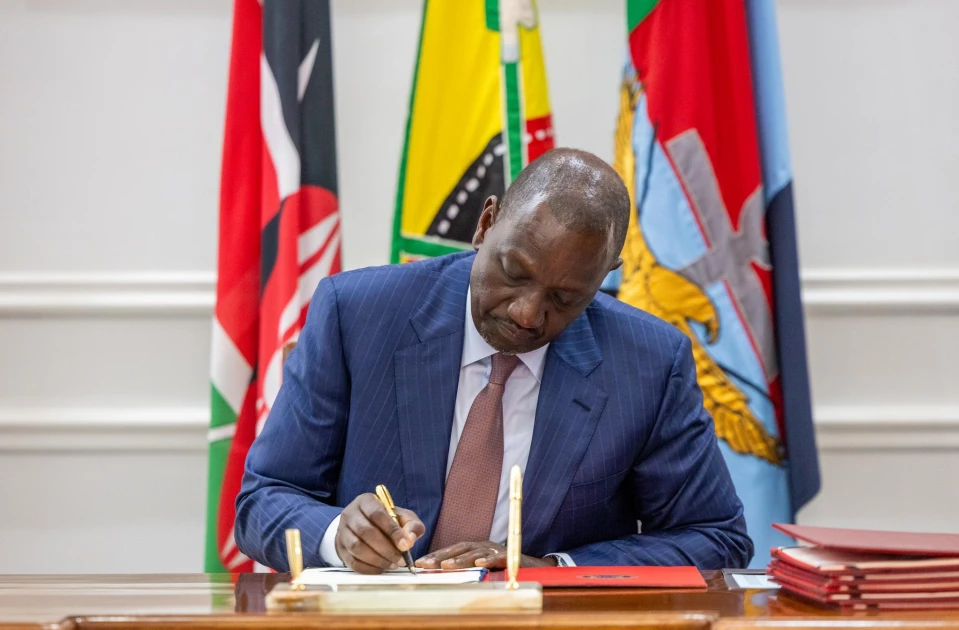The Computer Misuse and Cybercrime (Amendment) Bill, 2024 has sparked public interest and debate following its assent by President William Ruto on October 15, 2024, alongside six other bills.
The Bill, sponsored by Wajir East MP Aden Mohamed, aims to tighten Kenya’s cyber laws and strengthen the government’s ability to fight online crime, child exploitation, terrorism, and digital fraud.
It amends the original Computer Misuse and Cybercrimes Act, 2018 (Cap 79C), which governs how crimes committed using computers, phones, or the internet are handled in Kenya.
The Bill gives new powers to the National Computer and Cybercrimes Coordination Committee (NC4) — the government body responsible for protecting Kenya’s cyberspace.
Under the new law, NC4 will now have the authority to block or restrict access to websites or mobile applications found to promote:
• Child pornography,
• Terrorism,
• Religious extremism, or
• Other illegal activities.
This means that websites encouraging hate speech, cult practices, or extremist content could be taken down or made inaccessible in Kenya.
The Bill introduces stiffer penalties for several online crimes, including harassment, phishing, and SIM-card fraud.
1. Cyber Harassment (Section 27 Amendment)
Any person who sends threatening, abusive, or offensive messages — online or through a digital platform — that could cause violence, property damage, or emotional harm, will face:
o A fine of up to Ksh. 20 million,
o Or 10 years in prison,
o Or both.
This includes sharing indecent or grossly offensive content intended to harm or humiliate others.
2. Phishing and Online Fraud (Section 30 Amendment)
The law expands the definition of phishing — tricking people into giving away personal information like passwords, IDs, or bank details.
Offenders face up to 3 years in jail, a fine of Ksh. 300,000, or both.
Creating fake websites or sending scam messages to collect personal data for unlawful use will also attract the same punishment.
3. SIM-Swap Fraud (New Section 42A)
A new offence — unauthorized SIM-swap — has been introduced.
Anyone who illegally gains control of another person’s SIM card to commit fraud or impersonation faces:
o Up to 2 years in prison,
o A fine of Ksh. 200,000,
o Or both.
SIM-swap fraud has become one of the most common cybercrimes in Kenya, often linked to mobile money theft and identity fraud.
According to MP Aden Mohamed, the amendments were needed to keep up with fast-evolving technology and new types of cyber threats.
“Criminals are becoming smarter every day. They are using the internet to spread hate, steal from innocent people, and target children. Kenya must stay ahead of them,” he said while defending the Bill in Parliament.
In recent years, Kenya has seen a rise in digital scams, online harassment, fake news, and cyberbullying, especially on social media.
Cybersecurity experts say the new law could help curb these problems — but must be enforced fairly and transparently.
However, digital rights activists have warned that the new powers could be abused by the government to silence critics or limit freedom of expression online.
Civil society groups such as Article 19 Eastern Africa and the Kenya ICT Action Network (KICTANet) have called for clear oversight mechanisms to ensure the NC4 does not arbitrarily block websites or social media pages.
“We support fighting cybercrime, but any decision to block online platforms must follow due process and judicial approval,” said Grace Mutua, a digital rights lawyer.
The Computer Misuse and Cybercrime (Amendment) Bill was among seven laws signed by President Ruto on October 15, 2024 — just before he announced the death of opposition leader Raila Odinga.
Others included:
• National Police Service Commission (Amendment) Bill, 2024
• Wildlife Conservation and Management (Amendment) Bill, 2023
• Land (Amendment) Bill, 2022
• National Land Commission (Amendment) Bill, 2023
• Air Passenger Service Charge (Amendment) Bill, 2025
• Privatisation Bill, 2025
The government says the amended law will help secure Kenya’s digital space, protect citizens from online abuse, and boost confidence in e-commerce and digital innovation.
Still, analysts caution that balancing security and freedom of speech will be crucial as the law is implemented.
“The law is a good step, but it must not be used to criminalize criticism or political debate online,” said Prof. Mutahi Ngunyi, a political analyst.



